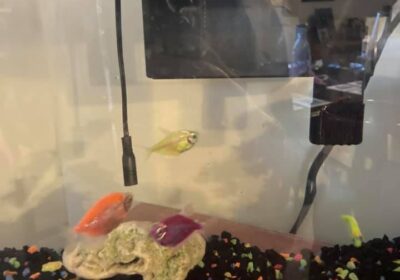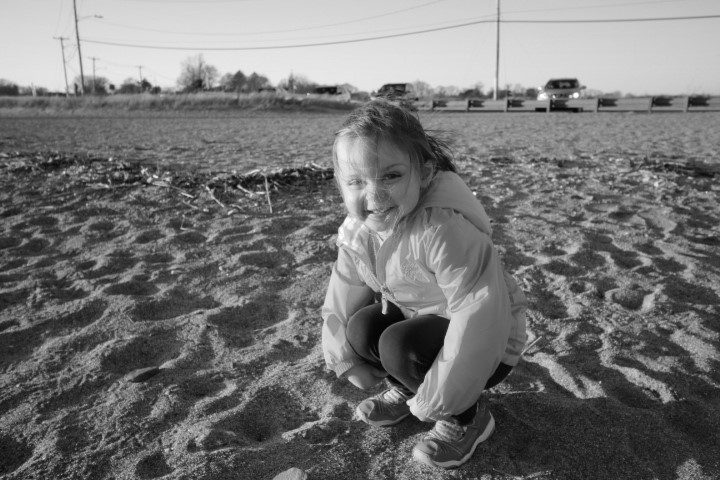
- Stats: 2093 0
- Author: Julie Avellino
- Posted: May 8, 2017
- Category: DivorceGlow, Featured, Inspiration LIfe, Personal Growth, Self Awareness
What it means to Thrive – A Conversation with Ann Braunagel
A while back I posted on Facebook something to do with being tired of feeling like I was in survival mode and ready to thrive and grow.
I got a lot of great comments and one person in particular, Ann Braunagel, my friend and mentor for the last 8 years commented that she had a lot to say on the subject. I asked her if she’d let me interview her on the subject and she agreed. My very first Divorce Glow interview was in the works. This is something I’ve been wanting to do for the last year and I was finally making it a reality. I have decided to write about the experience in story format because that’s how I naturally write. I hope you enjoy it.
I arrived at Ann’s home during a torrential rain storm a few minutes late for our appointment. Her husband Tom was running to his car and gave me a big smile and wave as he left for his day. I don’t know much about Ann and Tom’s marriage except that it seems just fine, which is great. And I knew that Ann had some hesitation about speaking to me for a website called Divorce Glow since she and Tom have been happily married for 30 years but for me she was the perfect first interview.
I entered Ann’s home cold and a little damp and removed my shoes and made my way to the large brown leather couch where the unfamiliarity of an interview for the both us was making things more formal and tense than they normally would be. I asked permission to record the session. She agreed and I put my phone on the coffee table.
Julie: “Okay, lets start,” I said. “I want to explore the types of divorce that women experience in life and really give women a chance to understand that while they may have experienced a marital divorce, there are many other divorces taking place, some more subtle than others. For example a marital divorce separates the two people as a couple but it can also separate a woman from financial security, her expectations for having children, her relationship with existing children, her employment needs, her ability to retire, her ability to care for herself in terms of healthcare, time for exercise, and even socially she may become divorced from family, friends, co-workers and others who no longer interact with her the same way. The divorce becomes a separation from a woman’s entire sense of self. And so there is a period of time I think that women are in survival mode. What I want to talk to you about is, given all these types of divorces that occur in a woman’s life how can a woman shift from surviving to thriving?”
Ann: “Right, so the first step in my opinion is that you have to let go. This is not the same as get over it, it’s actually really different. A woman who has gone through a divorce of any kind has a choice to hold onto the divorce or to let go and give herself permission to want change. It’s like a realization. She needs to realize she is valuable and worth the effort for the change.”
Julie: “Right. I like to call this a mid-life awakening. This can be what leads to a marital divorce or it can happen after a marital divorce but it also happens with people when their career is on burnout. They have an awakening to their own calling. A strong calling to evolve, learn and often slow down and be more present. But if a woman is beginning to feel those things how can she get everyone around her on board?”
Ann: “So that’s a challenge sometimes because when a person is making changes to habits and patterns, some of these patterns they’ve had a lifetime, they are actually impacting everyone in their life with those habits. And in a lot of cases the habits that bring us down the most and make us most miserable are actually supporting or enabling the people around us. So for example if you are unhappy with your weight and you wake up every morning and make breakfast for your kids while your husband gets ready for work and then one day you decide you’re waking up and going to the gym — you are breaking that pattern for you but also for all of those around. It’s a shock.
When I had my kids I tried to be a stay at home for a while but I couldn’t do it. It was not for me. I felt like I was divorcing myself at that time and so I found a daycare my kids loved and I went back to work. People judged me for using daycare and people had judged me when I was at home too. You know how they say you’re damned if you do and damned if you don’t? It’s true. So I was home and I was in survival mode and I realized I needed to make changes to get me where I felt like I could thrive. Ultimately I had to ignore everyone’s opinion and simply make the decision that was right for me. It had repercussions across my whole family but they understood my needs and supported me. That was important.”
Julie: “So when we think about surviving and thriving and I think actually most women don’t even realize there are two categories because so many are in survival mode, especially when kids are young or a divorce is new, when we think of survival versus thriving to me survive is a noun, it’s a thing where thrive is a verb. To thrive, in my opinion, a person needs to identify patterns, address them with purposeful change, pursue and participate in the change consistently and finally project the positive outcome in all facets of their life.”
Ann: “Well that brings up a good topic too about the unconscious mind and how it talks to itself. Your unconscious mind hears you. So you can say you want to make a change and divorce a person, place or thing but if you are telling yourself you wont succeed you are sabotaging that change before you even get started. My own ‘AHA’ moment as I shifted through a career change, opening my own business and selling that business and now changing careers again is that for a time my actions didn’t match my language. Once I got it all to match, I felt the shift, I moved into thrive mode. And in this mode I began to see that some people around me didn’t match my attitude or goals.”
Julie: “Yes! I feel that what many people are really divorcing is the mindset of those around them. How did you handle that? How did you handle important people in your life that sort of weren’t on the same growth trajectory as you or maybe had a victim mindset? Did you need to find support elsewhere? Was it isolating? Did you have support?”
Ann: “I really am fortunate to have my husband along with me as I grow. We are not always of the same mindset, I mean we have different points of view but together we both are always committed to learning and growing and challenging ourselves so that has always been a support in my life. And my friends, I’d say we had different seasons of learning too so maybe we weren’t always on the same page at the same time but we believed in the journey and the transformation and the possibility in each us, so that has been good. There have been others though that the mindset has grown too far apart. That can be a challenge because you don’t want to write those people off but you have to recognize that their energy will project on to you so to really thrive you need to limit how much impact other’s fear-based thinking and victim mindset, survival mindset can really get to you.
Julie: “Do you tell them they are of a different mindset?”
Ann: “ Well now, as a coach I am trained in helping people in this area, but only if they want help. So I’ll offer help but they can take it or leave it. The key really is with me. I have learned to chose to not respond. The words or actions of a person just don’t have an impact like they used to. There is so much power in knowing that you don’t have to respond to whats happening to you but instead to just create the desired outcome.”
Julie: “When you limit or opt out of responsive mode are you still able to hear and accept constructive criticism?”
Ann: “Yes. I take the learning from everything always. I don’t not respond and just forget what happened I learn from it and then let go and move on. That is a huge part of remaining in thrive mode.”
Julie: “Do you have a definition for Thrive? Does it have a financial component? What does it look like to you?”
Ann: “Thats the thing we can all make our own definition for thrive and then achieve it. It may have money involved or it may not. It’s each persons decision. You have to remember in thrive mode you are making decisions and if they work or not you are still in forward motion. Thrive doesn’t mean there is no more failure it means there is always a forward motion of learning.
—- At this point I want to step away from the interview and share with you some of my thoughts on how you identify if you are in survival mode or if you are thriving.
Surviving
1) don’t know what to do
2) feel stuck
3) in a pattern/status quo
4) responsive
5) living within the definition of others
Thriving
1) make small, purposeful changes even if goal is still unclear
2) make progress with partners/support
3) aware of changing patterns, open to the unexpected
4) decisive
5) faithful and committed to your own plans
During my talk with Ann I said to her half jokingly after we were recording that “the journey to thriving makes you want to die.” What I meant by that was, at least for me, that it has been exhausting in a way I hadn’t before experienced. My shift from survive to thrive was very isolated for the first few years. (Yes mine is taking years.) Ann’s took one year. It’s different for each us. But for me I look back and can now acknowledge that I went through a marital divorce, a mindset divorce, a career divorce, a lifestyle divorce, a divorce from the expectations I had of friends and family and a major divorce from my own high expectations of what I thought I need to do to be a good mom and successful woman. There was so much upheaval in a short amount of time. When the concept of thrive was brought up to me for the first time my thought was “shit, who has time for that?” because it seemed so overwhelming just to survive at that time.
As I continued my own quest for self-awareness and experienced and embraced my midlife awakening I began to meet the most amazing people who all offered me little bits of information that permitted to develop my insights, ideas and communication with others on similar topics. My own ability to stop responding and simply move forward led to the opportunities I am pursuing today. But it is a tiring and imperfect experience. I have to remember to go slow, rest, allow for the emotions to come through to the surface and move through me and then let them go. When I experience stress or sadness or happiness I try to envision that emotion as a light that literally is moving through me. It may linger for a moment in my core but I let it move all the way through and then see it outside of myself for what it is, whatever color or depth or light or transparency it has and see it and then let it go. That is my trick for experiencing emotions more present-mindedly and in a finite way.
Back to the interview.
Julie: “Thank you so much for sharing all that you have with me and for helping me expand the concept and definition of divorce among my readers so that they can find their path to thriving. Before we finish if you had to narrow down the steps to thriving what would you tell someone?”
Ann: “Well I think the most important thing always is to start with letting go of the negative. That’s number one. Negative memories, perceptions, people. Keep the learning and let the experience go. Second you need to create. Write it down, map it out, put it where you can see it and be really clear about what you want to create. Anything is possible. Lastly have support. Find like-minded people, search for them, hire them if you need to but support is key. There are groups for everything and the more you connect with like-minded people who have a similar goal the more you’ll be able to create the outcome.”
Julie: “Yes! And I think there’s an important distinction to be made there, find like-minded people as it relates to your goal not to your past story or problems. So don’t go and find a group of people that all have the same problem as you but instead find a group that has achieved something that you want to achieve. One group will keep you stuck and one will move you forward. Thank you so much Ann! You are Divorce Glow’s first interview and I couldn’t be more excited about that!”
Ann: “Thank you! Just remember the way you think and act creates your life — it’s amazing!”
It’s been a few days now since I met with Ann and I’ve had time to reflect on our talk and on the motivation behind my initial Facebook post that prompted the meeting. I believe we enjoyed an engaging and honest conversation more than a stuffy interview and so I’ve decided to change the title of this from “An Interview with” to “A conversation with” to reflect this.
The insight I uncovered through this conversation is this: I didn’t realize I was under the impression that thriving equaled easy, successful, whole and accomplished when in fact thrive is not synonymous with those things at all. To be in thrive mode does not eliminate failure or challenge or struggle at all. It simply changes the way we respond and perceive the failures, challenges and struggles we encounter. I now know I am clearly thriving and that I need to allow myself permission to rest and to still fail on occasion without it undermining all of my progress. I have been running at a faster pace than I am used to right now and that for me tests my patience because I feel like I should be seeing more benefit. But right there, there’s the SHOULD once I identify a should I can find the source of my stress, disarm it and move past it. I am right where I am supposed to be for me. That’s not a free pass to stop working hard or avoid challenging opportunities and it’s not an excuse either. It’s a fact. I am right where I need to be right now for my own long-term betterment and for a sustainable thriving experience.
What’s Your Take Away?
Ann Braunagel is a Transformational Coach Master Practioner of NLP. She works with individuals, executives and corporations to maximize performance utilizing coaching and training. You can reach her at [email protected]



